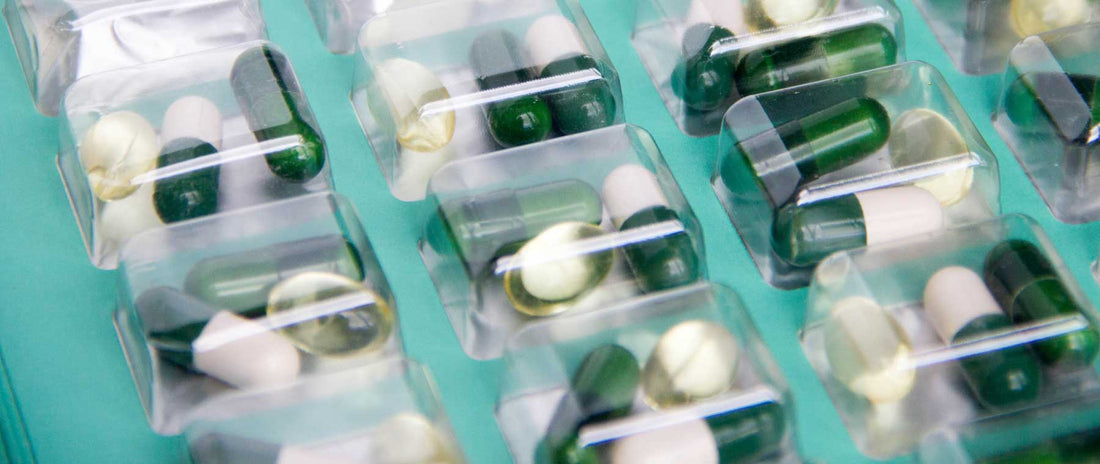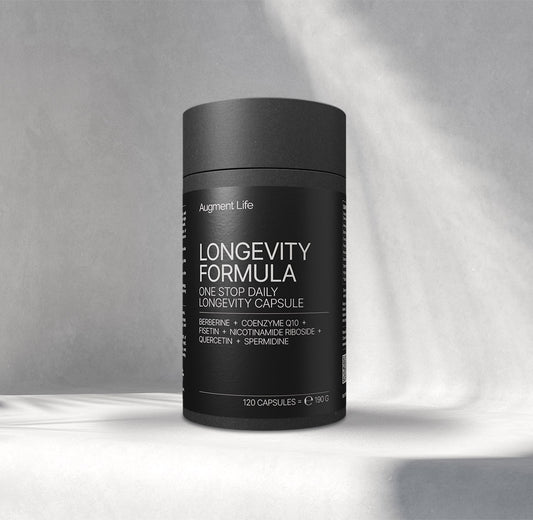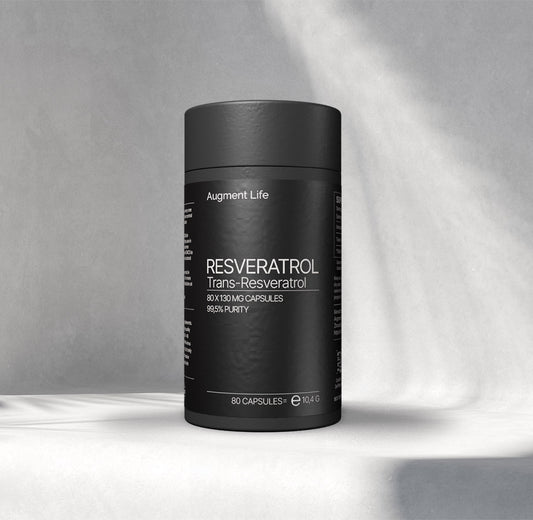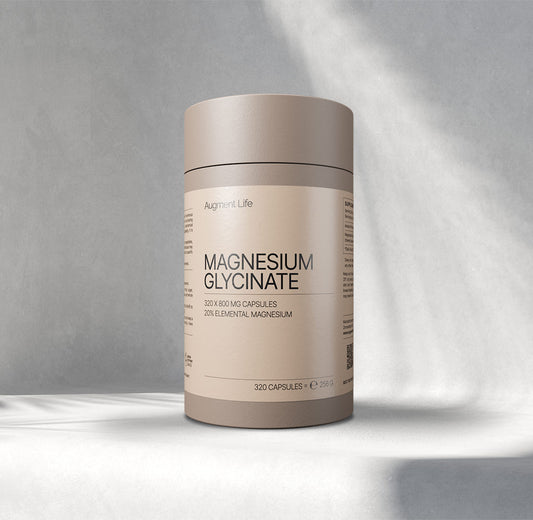Around the world, pharmaceuticals have long played a central role in modern healthcare, serving as the primary approach to the prevention, diagnosis, and treatment of diseases. However, before the 19th century, medicine was derived solely from natural sources such as plants, herbs, fungi and more1. The diverse benefits, potential for fewer side effects, and wide availability make natural products and supplements attractive to many. As a result, the supplemental industry has continued to thrive and grow alongside modern medicine. While sharing many similarities, food supplements and pharmaceuticals can differ significantly in their composition, regulation, mechanisms, and intended use. Considering the vast options, it is important to understand the difference between pharmaceuticals and food supplements.
So, What’s the Difference?
Composition:
Originating primarily from nature, food supplements, also known as dietary supplements, are a wide variety of products including vitamins, minerals, amino acids, roots, herbs, enzymes, phytonutrients, and other botanicals. From vitamin C to plant derived extracts such as resveratrol and quercetin, food supplement quality can vary greatly and these products can come in a wide variety of forms, such as pills, tablets, liquids, or powders.
Pharmaceutical drugs are manufactured in laboratories. These drugs contain active pharmaceutical ingredients (APIs) that are used to treat diseases, illnesses, and other health-related issues. These drugs are developed through extensive research and undergo rigorous testing to ensure safety, efficacy, and quality.
Regulation:
Walk into any supermarket and you can find shelves jam packed with supplements promoting everything from weight loss to immune protection. This vast number of supplements on the market and the constantly evolving nature of the industry represents a great challenge to authorities and regulatory bodies. Adding to these complexities, countries around the world have their own unique cultural practices, beliefs, and governmental policies relating to supplementation. While agencies such as the World Health Organization continue to work towards globalized standards, cultural differences, government systems, and perceptions make this a daunting task 2.
On the other hand, pharmaceutical drugs are subject to much more stringent regulations and undergo a series of preclinical and clinical trials to demonstrate safety, efficacy, and quality before they can be approved for use. Regulatory authorities and institutional review boards evaluate new drugs and grant final approval for dosage and usage3. Unlike supplements, most pharmaceuticals also require a prescription from a licensed medical professional.
Usage:
Food supplements provide additional nutrients that may be lacking from the regular diet. The primary benefits of dietary supplements relate to their capacity to correct nutritional deficiencies along with their overall impact on health and bodily function. While some still argue that supplements cannot treat, prevent, or cure diseases, significant evidence continues to suggest the opposite4. In fact, ongoing research efforts demonstrate the disease-fighting power of food supplements and their constituents4.
- Cardiovascular diseases
- Obesity
- Diabetes
- Cancer
- Aging
- Alzheimer’s
- Inflammatory bowel disease
Beyond their disease-fighting potential, food supplements can promote a wide variety of biological responses that can result in desirable physiological outcomes relating but not limited to:
- Exercise and sports performance5
- Skin care6
- Oxidative stress and aging7
- Obesity and Metabolism8
- Joint health9
Pharmaceutical drugs are specifically formulated to target physiological processes or pathways in the body to target diseases. These drugs are developed to interact with specific receptors, enzymes, or biological targets in the body to produce a desired therapeutic effect10. They often exert more potent and immediate effects compared to food supplements. Before manufacturing begins, these drugs are carefully formulated to achieve specific pharmacokinetic properties to ensure efficacy and safety. However, as you have probably noticed in countless drug commercials, the intended result does not always come without the cost of side effects. This aspect of pharmaceuticals is reminiscent of a quote from Thomas Sowell, “There are no solutions. There are only tradeoffs”. While pharmaceuticals have their place and have greatly advanced modern medicine, they are not without their limitations.
In summary, food supplements and pharmaceutical drugs can differ greatly in composition, regulation, intended use and the potential for side effects. Some of the biggest concerns regarding food supplements relate to the lack of regulation and quality control issues. While pharmaceuticals undergo extensive drug development and clinical trials, which provide substantial scientific data on their safety, they can still have serious side effects. Long before recorded history, food and products from the natural world were critical to humanity’s survival and well-being. Pharmaceutical drugs are relatively new to the progression of our species and the long-term impact of these substances is still unknown. In the end, it is important to be well-informed when it comes to dietary supplements. Through a proper understanding, the true power and benefits of nature and food supplementation may be ascertained.
References
- Jones AW. Early drug discovery and the rise of pharmaceutical chemistry. Drug Test Anal 2011; 3: 337-344, doi:10.1002/dta.301.
- Dwyer JT, Coates PM, Smith MJ. Dietary Supplements: Regulatory Challenges and Research Resources. Nutrients 2018; 10, doi:10.3390/nu10010041.
- Robuck PR, Wurzelmann JI. Understanding the drug development process. Inflamm Bowel Dis 2005; 11 Suppl 1: S13-16, doi:10.1097/01.mib.0000184851.46440.a3.
- Zhang YJ, Gan RY, Li S, Zhou Y, Li AN, Xu DP, et al. Antioxidant Phytochemicals for the Prevention and Treatment of Chronic Diseases. Molecules 2015; 20: 21138-21156, doi:10.3390/molecules201219753.
- Cooper R, Naclerio F, Allgrove J, Jimenez A. Creatine supplementation with specific view to exercise/sports performance: an update. J Int Soc Sports Nutr 2012; 9: 33, doi:10.1186/1550-2783-9-33.
- Göllner I, Voss W, von Hehn U, Kammerer S. Ingestion of an Oral Hyaluronan Solution Improves Skin Hydration, Wrinkle Reduction, Elasticity, and Skin Roughness: Results of a Clinical Study. J Evid Based Complementary Altern Med 2017; 22: 816-823, doi:10.1177/2156587217743640.
- Deepika, Maurya PK. Health Benefits of Quercetin in Age-Related Diseases. Molecules 2022; 27: 2498, https://www.mdpi.com/1420-3049/27/8/2498.
- Timmers S, Konings E, Bilet L, Houtkooper RH, van de Weijer T, Goossens GH, et al. Calorie restriction-like effects of 30 days of resveratrol supplementation on energy metabolism and metabolic profile in obese humans. Cell Metab 2011; 14: 612-622, doi:10.1016/j.cmet.2011.10.002.
- Martínez-Puig D, Costa-Larrión E, Rubio-Rodríguez N, Gálvez-Martín P. Collagen Supplementation for Joint Health: The Link between Composition and Scientific Knowledge. Nutrients 2023; 15, doi:10.3390/nu15061332.
- Davis RL. Mechanism of Action and Target Identification: A Matter of Timing in Drug Discovery. iScience 2020; 23: 101487, doi:10.1016/j.isci.2020.101487.












